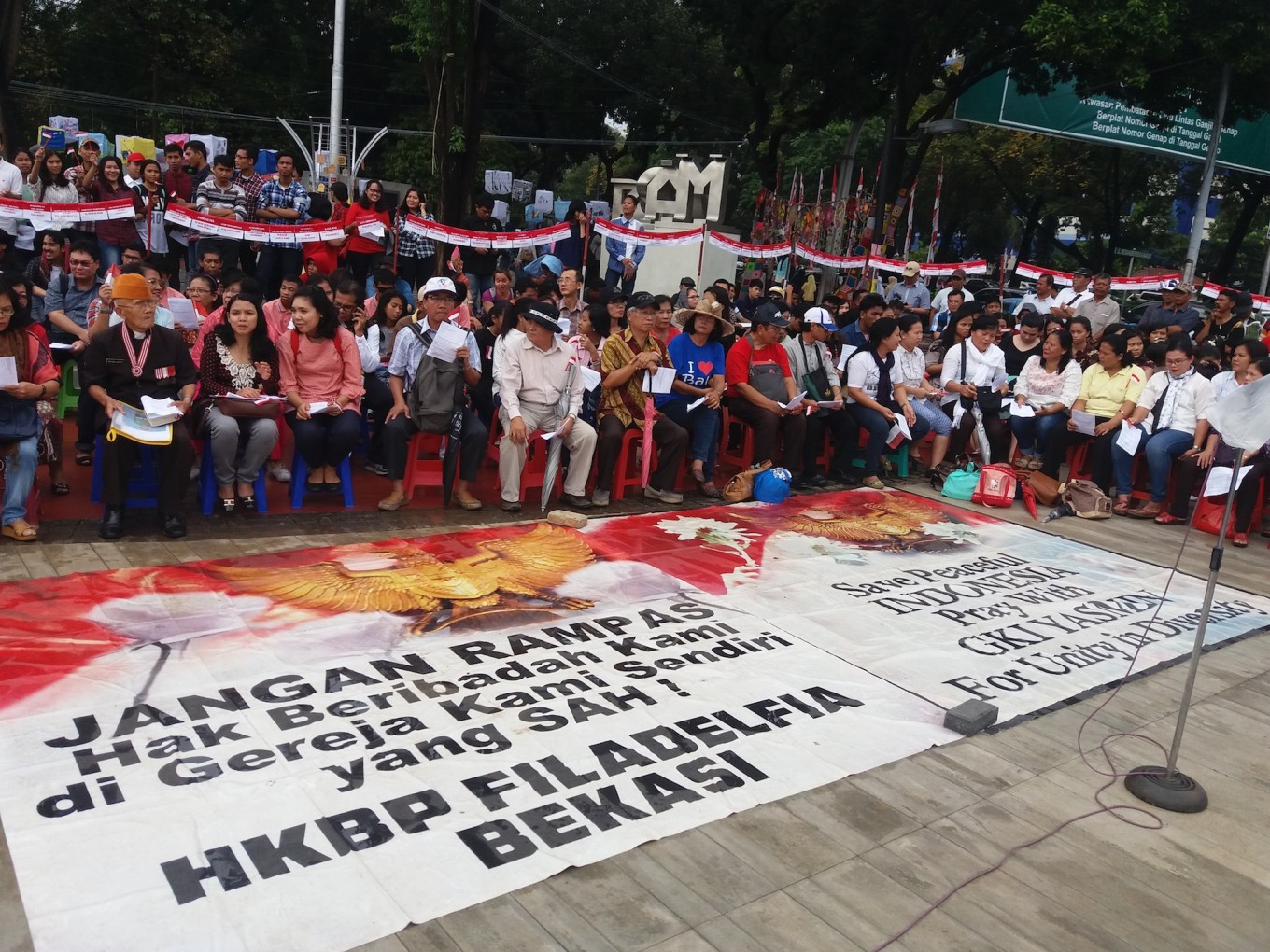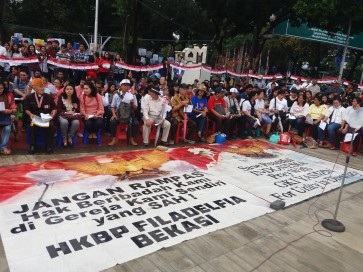Popular Reads
Top Results
Can't find what you're looking for?
View all search resultsPopular Reads
Top Results
Can't find what you're looking for?
View all search resultsReligious harmony, not freedom, ‘more appealing’ to majority in Indonesia
The research, which started last October and is expected to be complete in September, also finds that non-mainstream organizations are inclined to opt for religious freedom as they perceive freedom to be more significant for their survival.
Change text size
Gift Premium Articles
to Anyone
P
roblems of religious discrimination are likely to continue blighting Indonesian society given its majority-minority dichotomy and the public’s preference for religious harmony rather than promoting freedom, according to ongoing research by the Indonesian Consortium of Religious Studies (ICRS).
The research, which started last October and is expected to be complete in September, also finds that non-mainstream organizations are inclined to opt for religious freedom as they perceive freedom to be more significant for their survival.
“The religious mainstream uses harmony as an excuse to maintain order and social stability, which must not be disrupted by aspirations for freedom by minority groups,” ICRS researcher Syamsul Asri said in a discussion at the Religious Affairs Ministry on Monday.
The ICRS is a research consortium on inter-religious studies established by three Yogyakarta-based higher institutions – Gadjah Mada University (UGM), Sunan Kalijaga Islamic University and Duta Wacana Christian University – in 2006.
According to the research, state-sponsored religious harmony has been effective since Soeharto’s New Order era when ethnic, religious, racial, and group identities (SARA) were used as a conversation stopper and tool for self-censorship. The policy has thus resulted in the normalization that is based on unbalanced relations between the majority and minority groups.
Syamsul said the notion of categorizing the public into majority and minority groups developed and was harnessed as the new “normal” in Indonesian society in the post-Soeharto Reform era beginning in 1998.
The desecration of Christian graves in Magelang, Central Java, in January this year and the blasphemy case against former Jakarta governor Basuki Tjahaja Purnama when he was running for Jakarta governorship in 2017 are a sign of growing conservatism and intolerance in the society.


















